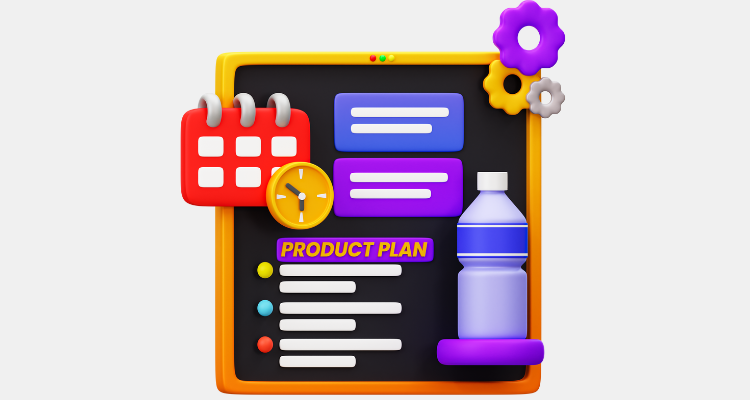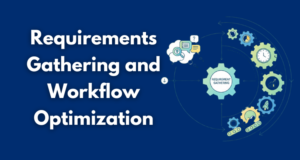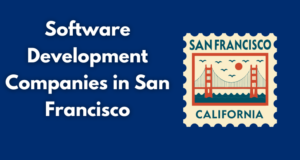In food manufacturing industry,aligning production with customer demand is more important than ever. Food manufacturers face unique challenges like managing perishable ingredients, complying with strict regulations, and responding quickly to changing market needs.
Traditional production planning methods often manual or spreadsheet-based, can no longer keep up. The future lies in combining smart scheduling powered by artificial intelligence (AI) with modern ERP systems to optimize production in real time.
In this blog, we’ll explore why smart scheduling is a game changer for the food industry, how AI-driven ERP solutions work, and how Folio3’s specialized food ERP modules can help manufacturers stay ahead.
Table of Contents
ToggleThe Complex Challenge of Food Production Planning

Food manufacturing is a complex operation that requires balancing many factors:
- Perishable Ingredients: Raw materials often have short shelf lives, so production must happen just in time to avoid waste.
- Demand Variability: Consumer preferences change due to seasons, promotions, and trends, making it hard to predict demand.
- Regulatory Compliance: Food safety laws require full traceability and strict quality controls.
- Resource Constraints: Limited machine capacity, labor shifts, and maintenance schedules restrict flexibility.
- Waste Reduction: Minimizing excess inventory and scrap is essential for profitability and sustainability.
While traditional ERP systems help manage inventory, procurement, and orders, they often lack the flexibility to dynamically schedule production based on real-time conditions. Manual scheduling or disconnected tools can’t quickly adapt to sudden changes like rush orders or equipment breakdowns, leading to inefficiencies and higher costs.
What is Smart Scheduling, and Why Does It Matter?

Smart scheduling uses advanced technologies mainly AI and machine learning to create, optimize, and adjust production schedules automatically.
Unlike fixed schedules, smart scheduling systems continuously analyze real-time data and constraints to ensure production runs as efficiently as possible.
Key Benefits of Smart Scheduling in Food Manufacturing
- Dynamic Adaptability: Schedules update instantly in response to new orders, supply disruptions, or equipment issues.
- Optimized Resource Use: Machines, labor, and ingredients are allocated in the best sequence to maximize output.
- Reduced Waste: Production aligns closely with demand and shelf-life constraints, minimizing spoilage.
- Better Compliance: Automated tracking supports regulatory reporting and full traceability.
- Improved Customer Service: Faster response to demand changes helps meet delivery deadlines consistently.
How AI Powers Smart Scheduling in Food ERP
At the heart of smart scheduling is AI-driven optimization. Here’s a simple breakdown of how it works:
Data Integration
Modern food ERP systems gather data from many sources, such as:
- IoT sensors that monitor machine status and environmental conditions
- Manufacturing Execution Systems (MES) that track production progress and quality
- Supply chain systems that monitor inventory and supplier deliveries
- External data like market trends and weather forecasts
This data feeds into AI algorithms to create smarter schedules.
Constraint-Based Optimization
AI scheduling engines use complex algorithms to create production plans that respect many constraints, including:
- Machine capacities and maintenance windows
- Labor availability and shift patterns
- Ingredient shelf life and allergen changeover requirements
- Delivery deadlines and order priorities
- Energy consumption or sustainability goals
Real-Time Re-Optimization
When something changes — like a machine breaks down or a rush order arrives — the system recalculates the schedule automatically. This continuous adjustment helps minimize downtime and waste while maximizing productivity.
Scenario Simulation and Decision Support
Schedulers can test different “what-if” scenarios to see how changes affect production. This helps managers make smarter, data-driven decisions.
Real-World Examples of Smart Scheduling Benefits
Consider these common challenges in food manufacturing and how smart scheduling helps:
- Managing Perishable Inventory: Instead of manually tracking expiry dates, smart scheduling automatically uses the oldest stock first, reducing spoilage.
- Handling Rush Orders: When urgent orders come in, schedules adjust instantly to prioritize these jobs without disrupting the entire production line.
- Equipment Downtime: Predictive maintenance scheduling prevents unexpected breakdowns by planning downtime proactively.
- Allergen Changeovers: Scheduling optimizes product sequences to reduce cleaning time and minimize cross-contamination risks.
- Energy Costs: Energy-intensive tasks can be scheduled during off-peak hours to save on utility bills.
Why Choose Folio3’s Food ERP for Smart Production Planning?
Folio3 offers a comprehensive ERP solution for the food industry designed to handle the complexities of food manufacturing. Their platform integrates production planning with smart scheduling features, enabling manufacturers to:
- Automate complex scheduling tasks using AI and real-time data
- Connect production seamlessly with inventory, procurement, and quality management
- React quickly to changes in demand or supply chain disruptions
- Maintain full traceability and compliance with food safety regulations
For manufacturers needing more specialized capabilities, Folio3’s ERP for food manufacturing management module offers advanced batch tracking, allergen management, and detailed production analytics. This granularity is essential for managing complex recipes, multiple product lines, and regulatory audits.
The Future of Food Manufacturing: Connected, Autonomous, and Sustainable
The integration of AI-driven smart scheduling with ERP is just the beginning. The future will bring even more exciting advances:
- Autonomous Factories: AI and robotics working together to run manufacturing 24/7 with minimal human intervention.
- Blockchain Technology: Transparent and tamper-proof records of every ingredient and process step to boost trust across the supply chain.
- Sustainability-Focused Scheduling: Algorithms that optimize production for energy efficiency, water use, and carbon footprint alongside business goals.
- Collaborative Ecosystems: Real-time data sharing between suppliers, manufacturers, and distributors to synchronize production and reduce bottlenecks.
Conclusion
Smart scheduling powered by AI is transforming production planning in the food manufacturing industry. By integrating these capabilities into modern ERP systems like those from Netsuite Folio3, manufacturers can reduce waste, improve compliance, increase agility, and deliver better customer experiences.
Food manufacturers who adopt smart scheduling and AI-driven ERP solutions will be better prepared to navigate the complexities of their industry and stay competitive in a rapidly changing market.
If you’re ready to improve your production planning and scheduling, explore Folio3’s industry-leading ERP solution for the food industry and their specialized ERP for food manufacturing management today.
Let me know if you want me to add anything else or customize it further!









